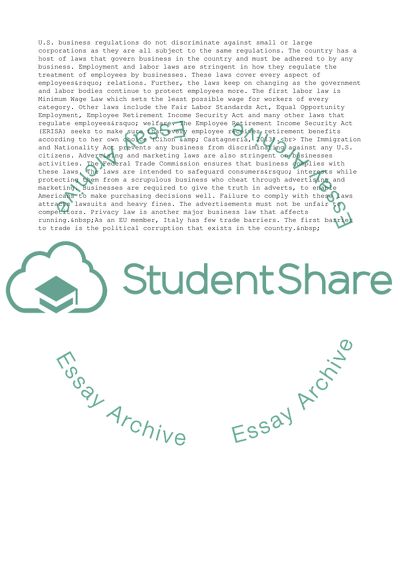Cite this document
(“US company expanding to Italy Research Paper Example | Topics and Well Written Essays - 2000 words”, n.d.)
Retrieved from https://studentshare.org/business/1633857-us-company-expanding-to-italy
Retrieved from https://studentshare.org/business/1633857-us-company-expanding-to-italy
(US Company Expanding to Italy Research Paper Example | Topics and Well Written Essays - 2000 Words)
https://studentshare.org/business/1633857-us-company-expanding-to-italy.
https://studentshare.org/business/1633857-us-company-expanding-to-italy.
“US Company Expanding to Italy Research Paper Example | Topics and Well Written Essays - 2000 Words”, n.d. https://studentshare.org/business/1633857-us-company-expanding-to-italy.


